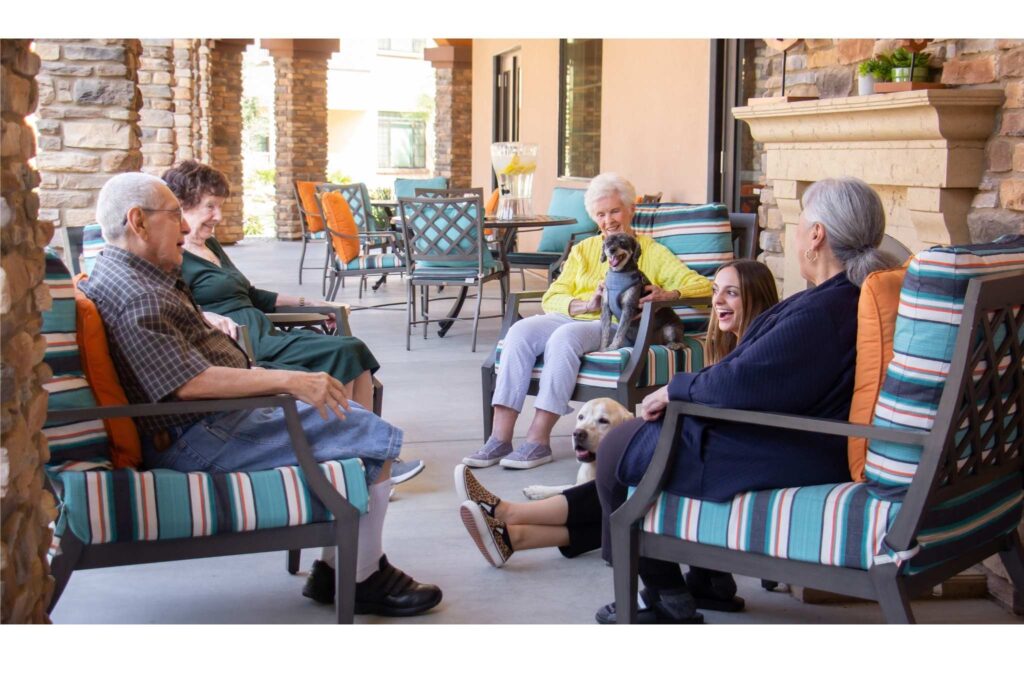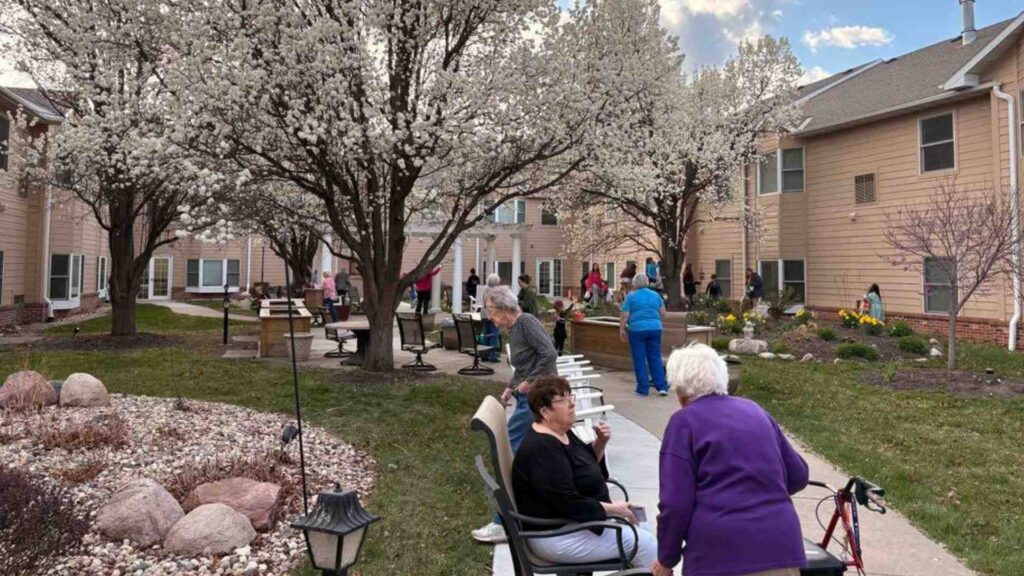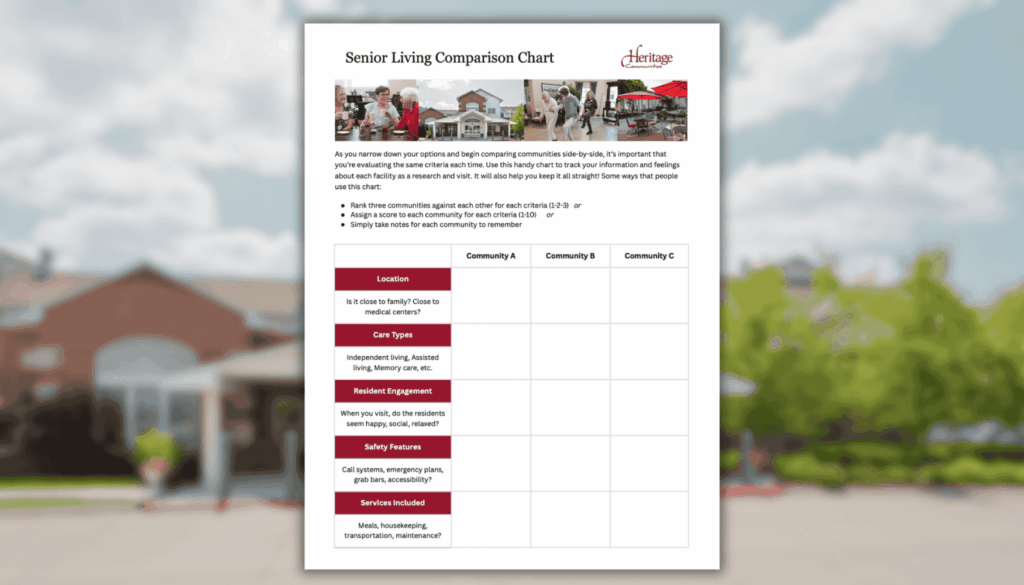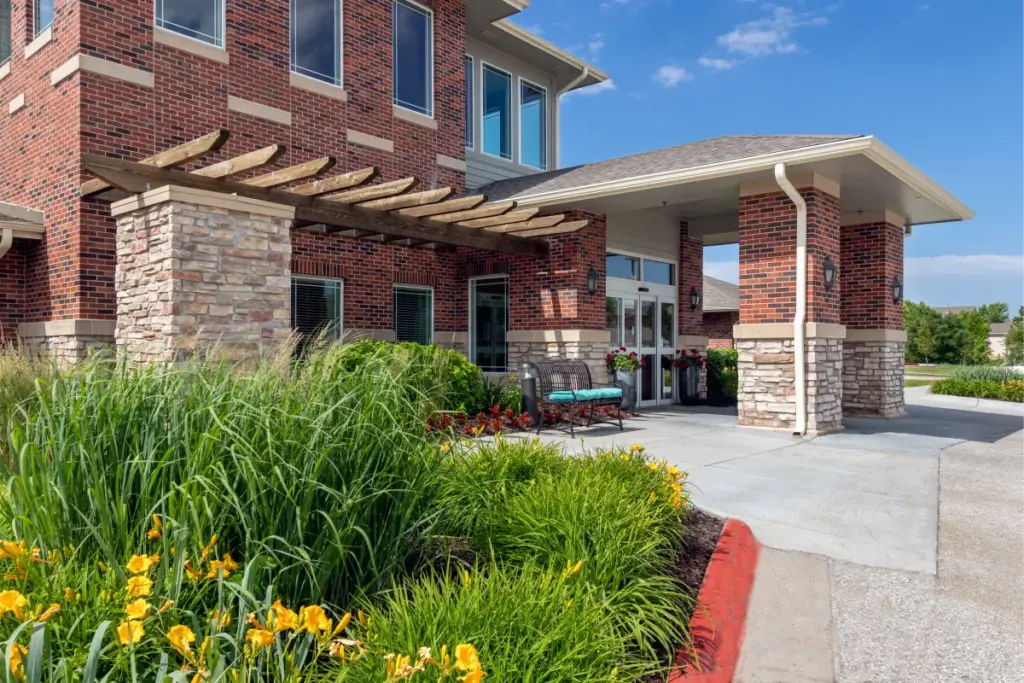Senior Living Options: When Your Spouse Needs Daily Assistance but You Don’t
Senior living options are necessary when you are doing your best to care for a spouse who really needs 24-hour attention or at least more assistance than you can provide. What seemed doable has now become a heavier burden than you can handle. Yet if your spouse moves to assisted living or memory care you...

Senior living options are necessary when you are doing your best to care for a spouse who really needs 24-hour attention or at least more assistance than you can provide. What seemed doable has now become a heavier burden than you can handle. Yet if your spouse moves to assisted living or memory care you aren’t sure what you would do, as you are fine living independently. What senior living options are there for the two of you?
The challenges for caregivers
At first glance, it’s understandable to be a bit stubborn about wanting to care for a husband or wife. “Watching a spouse deal with health issues is difficult and it’s tempting to decide the best situation is for them to stay with you in the home you both have shared,” says Helen Crunk, Regional Healthcare Specialist of Heritage Communities. “Yet, it’s important to recognize the toll that being a full-time caregiver can take on every aspect of your life.”
Since being a caregiver is a full-time job, you don’t really have time to notice that your own health could be suffering from the stress. Here are signs of caregiver stress from the Mayo Clinic:
- Feeling overwhelmed
- Constantly worrying
- Poor sleep patterns
- Sadness
- Anger or irritability
- Frequent body pain, headaches
- Being tired all the time
- Gaining or losing weight
- Losing interest in favorite activities
You also may not be eating properly or getting enough exercise. You might be avoiding friends and not keeping your regular medical appointments. Alcohol or drug abuse also can occur. These factors can increase your risk of a range of diseases, including diabetes and heart problems.
Download our free guide, The Family Decision Toolkit.
Senior living options: what the right choice could mean for you
While there certainly are good suggestions for handling caregiver stress—accepting help, taking a break, joining a support group, and more—there’s one option that could not only serve your spouse’s needs, but also open up newfound freedom for you as well.
The option: choose a senior living community where your spouse can benefit from exceptional assisted living or memory care, and you can become an independent living resident.
Think about it: your spouse can enjoy all the benefits of a supportive environment specifically designed to help them achieve a higher quality of life—caring staff on-site 24/7, activities and programs that stimulate and engage, healthy socializing with residents, visitors and staff, a safe and secure environment, assistance with activities of daily living and more.
Just knowing they are safe and cared for could give you precious peace of mind, says Dr. Crunk. “You’d be just down the hall in your own comfortable independent living residence. You can visit them every day, have meals with them, spend time with them throughout the day, share anniversaries and birthdays, and other important events.”
Independent living keeps you close
Becoming a resident of independent living enables you to turn over the caregiver responsibility to a trained team available 24/7 who are dedicated to your spouse’s wellbeing. And you have given yourself a lifestyle with no worries about housekeeping or maintenance.
You enjoy excellent dining, activities and events, the companionship of others and so much more—all knowing you’ve made a sound plan for the future—and that your spouse is just steps away, day or night.
“You can get back to just being a husband or wife again, enjoying the time with your spouse as fully as possible,” says Crunk. “That’s a huge benefit.”
At Heritage Communities, we can help you find the senior living options that work for you both
In each of our Continuing Care Retirement Communities, you’ll discover a home and lifestyle that lets you define living better on your terms. Maybe you’re exploring carefree Independent Living for yourself. Or have an immediate need of moderate or a high level of care for a loved one. We’re here to connect you to the perfect community and living option. Let us tell you more.
Each Heritage Community Offers a Unique Array of Services and Levels of Living. Download our free guide, The Family Decision Toolkit. Or contact us today to learn more or schedule a tour.







